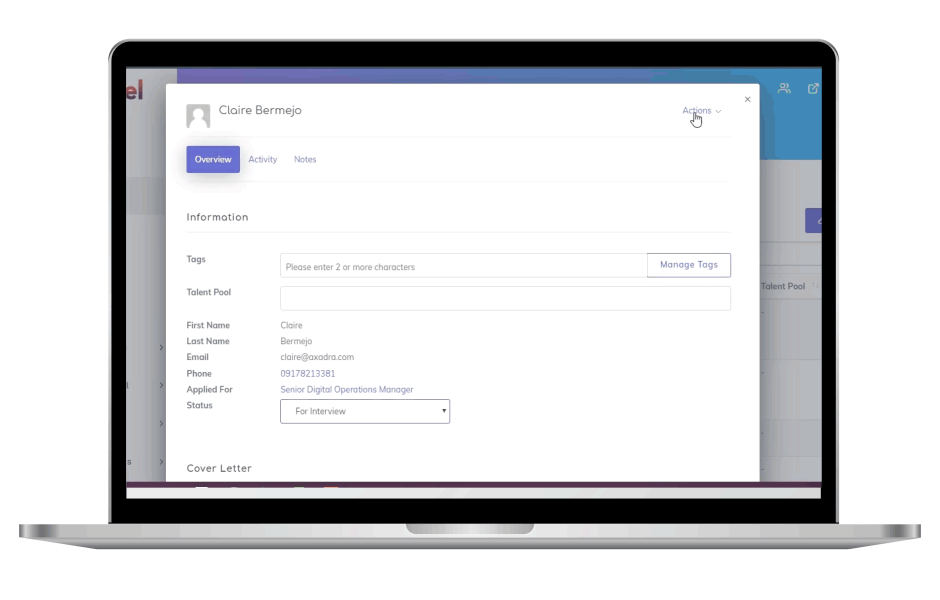How to be an effective manager? Technical skills certainly help as managers should have an expert understanding of their departments’ operations. Experience is also an important factor. The greater a manager’s experience is before filling in a supervisory position, the more valuable they are to the company.
However, neither of the factors mentioned above is as important as the topic of this article: people management skills. Why? Good question. I mean, isn’t it already enough to hire a manager who’s an industry expert with decades of experience?
Well, in today’s fast-paced world, an employee’s relationship with their manager sets the tone for their success within the organization. Successful employees equate to a successful business. Additionally, an article from Gallup shows that 70% of an employee’s motivation to produce quality output is influenced by their manager.
How can managers improve and respond to this? That’s right, with people management.
What is people management?

People management is the process of training, directing, and motivating your employees to be the best versions of themselves at work. This not only optimizes productivity and collaboration in the workplace, but it also promotes the professional growth of each team member.
When going through your recruitment process, there’s a chance that the best candidate won’t have all the skills and traits you’re looking for. This isn’t necessarily a bad thing since people management can help ensure that they can either pick up new traits to improve their value as an employee or understand how your business operates.
Workplace leaders, such as managers and department heads, use the skills in people management to boost employee performance and oversee workflow operations.
What are the goals of people management?
Ultimately, the goals of people management are to ensure that managers and those in leadership positions can effectively manage the people who work for them, especially in workplace situations such as:
- Leading employee training – As a leader in the workplace, sometimes managers are responsible for onboarding new employees and coaching current team members on updated processes. People management skills help you mentor employees and provide constructive feedback so they can succeed in their tasks and contribute to the overall success of the team.
- Managing deadlines – Managers need to direct employees, assign tasks, and establish achievable goals. With effective people management, you can evaluate the resources of your team and set realistic deadlines that encourage progress. It also inspires employees to go beyond the bare minimum and produce consistently high-quality work.
- Handling interpersonal conflicts – Those in leadership positions have the important role of resolving internal conflicts. With people management skills, you can effectively mediate conflicts between employees in a way that promotes respect, collaboration, and teamwork.
- Enhancing company culture – Managers have the authority to positively influence their work environment. They can use their people management skills to build rapport with employees and ask for feedback on their perceptions of the company. Managers can then use the feedback to incite positive changes to the company culture so that every employee feels right at home.
What are the essential people management skills?
If you’re hot on the pursuit on how to be an effective manager, incorporate these seven people management skills when interacting with your employees and performing organizational tasks.
- Active Listening
Active listening is the ability to focus completely on someone when they speak, making sure that you’re fully concentrating on their words instead of just passively hearing them. When you practice active listening, you make employees feel heard and valued.
Active listening is one of the easiest people management skills that you can develop and practice. Whenever an employee approaches you with a question or an issue, maintain eye contact and use nonverbal cues (e.g. nodding) to let them know you’re engaged in the conversation. After they’re done, repeat a brief summary of your understanding of what they’ve just said. If you’ve fully understood, ask follow-up questions to find out if they need anything more. You can also express that you empathize with them so they know that they have your support.
Once you’ve aced active listening in your arsenal of people management skills, you’ll promote positive interactions in the workplace.
- Patience
When it comes to good management skills, patience is a vital trait. When obstacles and setbacks arise (and they will), a good manager remains calm and patient.
Of course, that’s easier said than done.
Fortunately, patience is a trait that you can steadily improve. Every day offers you multiple opportunities to work on your patience. For instance, examine your reactions when you experience minor inconveniences such as traffic, long lines at Starbucks, or trying to hail a taxi on a Friday night. If you’re easily frustrated, work on staying calm. Meditation can also help you develop patience and remain calm during stressful situations.
When you’ve mastered the art of patience, you can use it when training new employees, teaching new methods, and handling issues. Employees are more likely to ask for clarification when they can trust their managers to be patient.
- Organization
Managing a team involves overseeing all the tasks of your employees. This makes the organization a crucial people management skill as it helps you monitor and maintain your team’s efficiency.
Signs of an effective organization include:
- Assigning tasks properly to team members
- Running meetings that tackle all necessary information
- Keeping a calendar to track deadlines actively
- Promptly responding to emails, questions, and approval requests
The organization also means adopting technologies that help speed up the team’s workflow. For instance, many HR managers have started using candidate tracking software to help their team organize applications and ultimately work more efficiently. With the right organizational tools, managers can streamline operations and ensure that everyone’s at peak productivity.
- Macromanagement
We’re certain you’re familiar with the word micromanagement, which is a supervisor’s tendency to closely observe and control their employees’ work.
How to be an effective manager? Avoid micromanaging your employees as much as possible. According to an article written by Linda Barnes, a management and program analyst, micromanagement can lead to low employee morale, productivity reduction, and high staff turnover.
Instead, focus on practicing macromanagement. Macromanagement is a good management skill wherein managers step back and give employees the freedom to do their jobs how they see it. As long as employees produce the desired result, managers don’t have to hover over their shoulders to nitpick mistakes or hold their hands throughout the process. In turn, employees appreciate being trusted with responsibility and are more likely to trust supervisors who trust them.
Of course, don’t adopt a laissez-faire attitude all the time. Continue to monitor situations and take charge when things go out of control. A good manager develops a balance between micro and macromanagement, and knows when to apply both.
- Employee Empowerment
Last, but definitely not the least, is the ability to empower employees. When you constantly empower your employees, you help them be more productive and develop new skills.
Important aspects of employee empowerment include:
- Offering constructive feedback that encourages skills-building
- Allowing them to adjust standard processes in the workflow if it improves their productivity
- Supporting them on challenging projects
- Being available for questions or additional coaching sessions
- Encouraging them to take additional training and courses to expand their expertise
How to develop your people management skills

Once you demonstrate how to be an effective manager with people management skills, you will become a stronger candidate for future leadership positions. But while it’s important to identify your strengths, it’s equally crucial to know the areas you need to improve on.
Consider using these strategies when you’re trying to develop your people management skills:
- Choose an individual skill to focus on for a period of time. People management is a broad skill set so it’s better to take it one step at a time. Select a specific skill from the list above, say employee empowerment, and learn more about it and its benefits before applying it in the workplace. Having a thorough understanding of the skill and its applications will make it much more effective and natural to pull off.
- Keep an open mind. It may be hard to admit it but you won’t always succeed on your first try. If you tried to be patient during a morning fiasco in your office but you blew up a ruse instead, don’t give up! Try again the next day. Every day is an opportunity to improve and if you keep an open, positive viewpoint, you’ll develop your people management skills much faster.
- Ask other managers for advice or feedback. Remember, you’re not the only supervisor with a team in the workplace! Ask other managers for advice on how to develop or practice your people management skills. You can also ask your higher-ups to provide you with leadership opportunities where you can practice and demonstrate good management skills.
- Enroll in professional development courses. If your company offers management training programs or sponsors online development courses, don’t hesitate to join them, even when they’re not required. Learning from experts is a sure-fire way to help develop your skills and learn specific, actionable strategies.
The way a manager handles his subordinates can mean the difference between a motivated, productive team and a team plagued with anxiety and mediocre performance. If there’s a poor relationship between employees and management, it hurts everyone in the company.
Take time to re-evaluate your current relationship with your team members and see how you can improve it with people management skills. Life as a manager is challenging, but once you’ve mastered good management skills, it’ll be just as rewarding.












